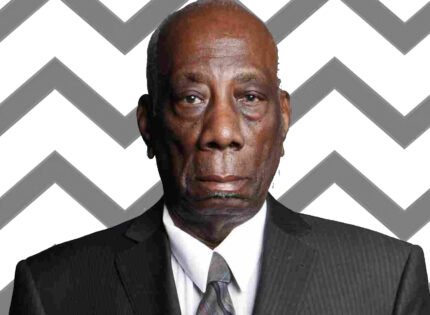
Reports show ‘systemic biases’ when it comes to race within Montreal police
There is a familiar French expression, “plus ça change, plus c’est la même chose” which, when translated means, “the more things change, the more they remain the same.”
Following the recent announcement of a class action suit, along with new allegations of racial profiling, the Montreal Police disclosed a new strategy aimed at eliminating racial and social profiling. According to Alex Norris, Chairperson of the Public Security Committee, the plan is the most ambitious and comprehensive far-reaching plan that the SPVM has ever adopted to combat and prevent racial and social profiling.
The plan calls for the hiring of three independent researchers, including sociologist Victor Armony of the Université du Québec à Montréal and criminologist Massimiliano Mulone of the Université de Montréal, to collect and analyze data on profiling. They will be assisted by the city’s commissioners on homeless people and Indigenous people Really!
What has happened to previous plans and recommendations dating back to 2002. Additionally, has consideration been given to a visible minority researcher?
The composition is tantamount to allowing the fox to tend the chicken coop, based on his declaration that he has become a vegan.
The indictment of racial profiling against the Montreal Police is certainly nothing new. In fact, the issue has been brought to the fore time and time again for over a decade.
As far back as 2002 the Montreal Police made a commitment to address racial profiling.
In 2011, a report written by the Quebec Human Rights Commission stated that racial profiling should be outlawed in Quebec, and public institutions must address the phenomenon through hiring practices.
Ethnic minorities in Quebec are subject to “police surveillance that is targeted and disproportionate,” The problem is concentrated in the greater Montreal area, and has eroded relations between ethnic communities and public authorities, the report states. https://www.cbc.ca/news/canada/montreal/racial-profiling-real-problem-in-quebec-1.1034922
Based on a series of public hearings held across the province the report made 92 non-binding recommendations, especially targeting police forces.
Among the recommendations were:
• Granting police ethic boards more power to sanction against racial profiling.
• Introducing anti-racism training at police academies in the province.
• Forcing government departments to adopt action plans against racial profiling.
The then Quebec Minister of Public Security, Robert Dutil, said his department will review the report “very seriously” and acknowledged there is room for improvement.
However, in 2017 shortly after Montreal Mayor Valerie Plante assumed office, a report found that police had failed to attain many of the objectives they had set for themselves five years earlier aimed at addressing racial profiling. https://www.cbc.ca/news/canada/montreal/montreal-police-report-discrimination-1.5313832.
The originator of the report, Prof. Myrna Lashley, Professor in Psychiatry at Mc Gill University said that police missed the mark in many areas, noting the dearth of training programs, a dismal record in the hiring of visible minorities and the lack of transparency.
A year later (2018), another study found that young people from the racially diverse, low-income neighbourhood of Saint-Michel are subject to “widespread and systemic” racial profiling by Montreal police.https://www.cbc.ca/news/canada/montreal/racial-profiling-by-montreal-police-widespread-and-systemic-in-saint-michel-report-says-1.4932045
The Chief of Police, Sylvain Caron along with Montreal Mayor Valerie Laplante, both expressed their shock at the findings of the recent report. The Chief, who only assumed the position last December, added however that despite his surprise, he takes the findings very seriously.
Sadly, there exists an element of surprise mingled with fear that they both were not aware, a probable case of surrealism regarding racism.
Fo Noemi, Executive Director of CRARR (Center for Research Action on Race Relations), hails the report as a step towards acknowledgement of the existence of systemic racism. Notwithstanding, one is left to wonder what took authorities so long to accept the fact that racism is alive and well in Quebec.
Now that they have finally accepted or realized this fact, is there solace to be found in the age-old adage “Better late than Never?”
The root of the problem and the unwavering tragedy lies in the way in which heads of all colors avert conversations of institutional and structural racism — our systems and structures – which have historically been proven to be racialized, wrong and broken.
The recently unveiled plan like many of its predecessors may be just another display of lip service by the SPVM. While Quebec’s population may be increasingly racially diverse such a facet is not reflected in the provincial police force, nor in municipal police forces surrounding Montreal.
Numbers compiled by CBC show that police forces in the greater Montreal region are lagging dramatically in their hiring of visible minorities. https://www.cbc.ca/news/canada/montreal/quebec-police-hiring-visible-minorities-1.3502667.
Considering the past, are the police moving forward at last?
Now armed with a plan in hand, what guarantee is there that a change will appear. Is there a genuine move to eliminate the schism from racism?
Y. Sam















